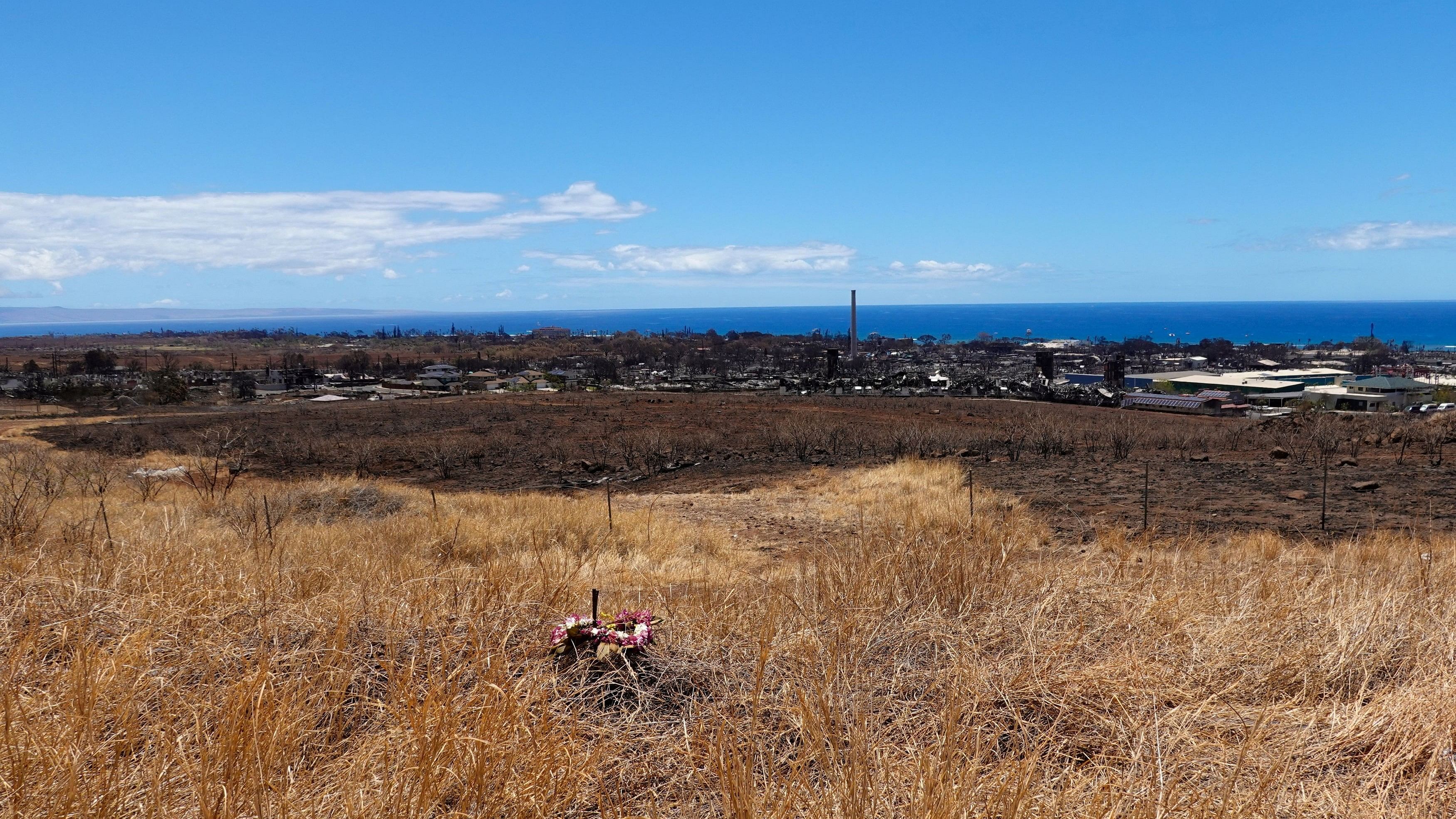
A lei of flowers sits on the grass above the fire ravaged town of Lahaina on the island of Maui in Hawaii, U.S., August 15, 2023.
Credit: Reuters Photo
Officials overseeing the effort to identify victims of the fire that destroyed the Hawaiian coastal town of Lahaina said Tuesday that 1,000 to 1,100 people remained unaccounted for, and that some of the missing may never be found.
Maui’s police chief, John Pelletier, speaking at a news conference, said authorities expected to make public a list of the missing in the coming days to try to narrow the search.
The confirmed death toll from the Aug. 8 fires is 115, marking the deadliest US wildfire in more than a century. But families on Maui and scattered across the country have grown increasingly desperate, as they wait to learn the fates of hundreds of people who vanished in a fast-moving brush fire so ferocious that it melted fire trucks and charred homes to ash.
In some cases, search teams that are combing through the rubble in Lahaina are finding only bones or fragments of bodies, complicating the task of identifying people.
“We may not know in the end about everybody,” Steven Merrill, the special agent in charge of the FBI’s Honolulu field office, said at the news conference in the Maui government center at Wailuku.
Investigators trying to determine who remains unaccounted for say they have been trying to reconcile multiple missing-persons lists and reports collected from shelters, aid groups and families.
In the aftermath of the Camp fire that destroyed Paradise, California, in 2018, the tally of the missing reached almost 1,300. But by releasing the names of the unaccounted for, authorities were able to slowly whittle down the list. The final death toll in that fire was 85 people.
Of the more than 1,000 still missing in the Lahaina fire, officials from the county of Maui said they did not have any estimate of how many were presumed dead.
They did say they had not identified any minors in official tallies of the missing. Classes at four schools on West Maui had been canceled the morning of the fires because of high winds and power outages, according to local news reports. After the fires, many residents feared that children had been trapped in the blaze.
Officials said only 104 family DNA samples have been provided, a relatively low number in the aftermath of an event with mass deaths. They urged families to provide DNA, and to allay concerns, they emphasized that the samples would be used only to identify victims.
Pelletier acknowledged that families were anxious to know what happened to their loved ones, but he pleaded for patience.
“It’s not a matter of doing it how fast,” he said. “It’s a matter of doing it right.”
This article originally appeared in The New York Times.